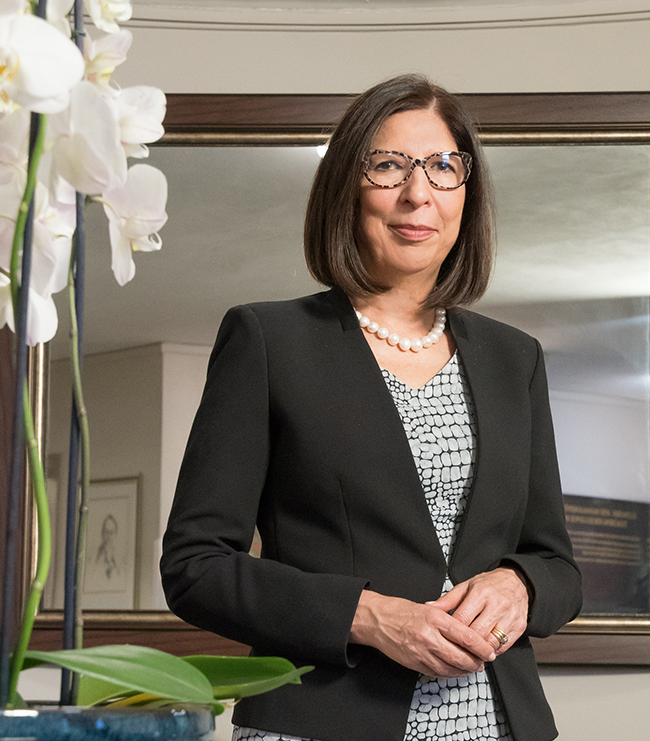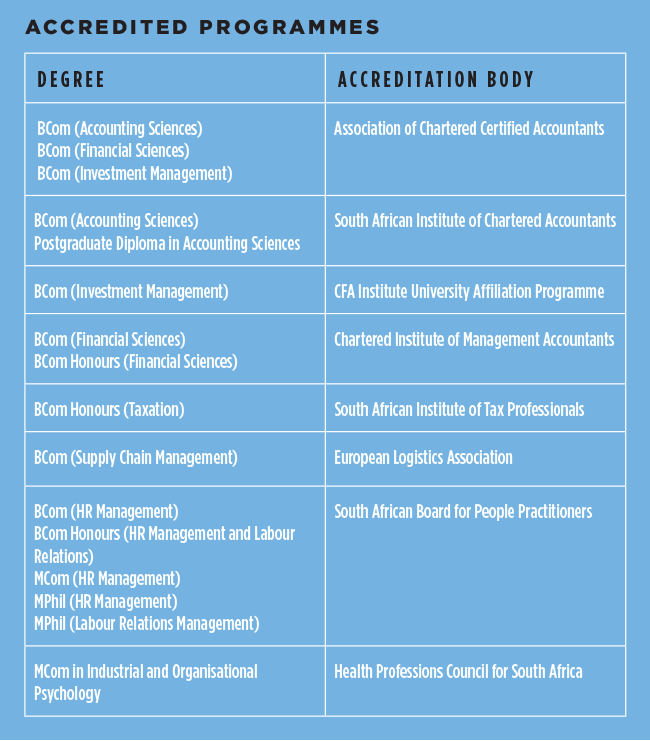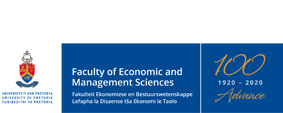Since its establishment in 1920 when a mere 32 students were enrolled for the BEcon degree, the Faculty of Economic and Management Sciences (EMS) has expanded its programme offerings to produce graduates who are ready for the future world of work and can meet the demands of the dynamic business environment. Today, there are close to 8 000 undergrad and postgrad students enrolled in various specialised BCom and BAdmin degrees. Reaching the 100-year mark is a formidable feat, and doing so while successfully navigating the challenges facing the higher-education sector is even more impressive. Under the leadership of the 14th dean, Elsabé Loots, the faculty has managed to go from strength to strength and advance relevant knowledge while developing employable, innovative and diverse graduates to co-create value for society.
The faculty has enjoyed numerous successes over the years. Some of its greatest include improved research performance, with a focus on themes that matter to the business world and society in general; the introduction of classroom innovations to entice a new generation of tech-savvy students; the positive perceptions employers have of the faculty’s graduates; the improvements on national and international ranking lists in the broader fields of business, economics and finance; the national and international awards bestowed on its students; consistent excellent results in the South African Institute of Chartered Accountants (SAICA) professional exams; and the securing of funding to support students who are in need.

High global ranking
According to Loots, ‘the faculty strives to remain globally competitive and these efforts have been recognised through leading international rankings’. In the 2020 QS World University Rankings by Subject, UP is ranked in the 151–200 band for Accounting and Finance, and in the 251–300 band for Economics and Econometrics.
The 2020 Times Higher Education World University Rankings by Subject place UP in the 301–400 band for Business and Economics, which includes business and management, accounting and finance, economics and econometrics, and public administration.
UP also had a strong presence on the 2019 Academic Ranking of World Universities, with rankings in the 151–200 bands for both Finance and Economics, the 301–400 band for Business Administration and the 401–500 band for Management.
Accredited programmes
The faculty contributes to UP’s international competitiveness and national relevance by ensuring that its academic and research programmes conform to the highest standards. ‘The faculty is extremely proud of the fact that, where applicable and available, a number of the degrees offered are accredited by statutory and professional bodies at national and international level,’ says Loots. ‘Accreditation is an additional confirmation that graduates will have received the best quality education.’ The faculty is also a member of the Association to Advance Collegiate Schools of Business (AACSB) International – a global non-profit association that aims to promote a culture of high quality and continuous improvement in business education. Loots reports that ‘we are at an advanced stage in our application for AACSB accreditation for the faculty’.
Flagship programmes and institutes
The faculty’s Accounting Sciences (CA) programme students have consistently achieved excellent results in the SAICA Initial Test of Competence (ITC), with an average first-time January ITC pass rate of 94% over the past 14 years. UP not only had the highest pass rate in SA for the January 2020 ITC but it also had seven students in the Top 10 of this challenging professional exam.
UP’s consistency and success in achieving these results is attributed to the innovative teaching methods, excellent lecturers walking the extra mile, as well as the students’ talent and commitment. The South African Reserve Bank Chair in Monetary Economics as well as the South African Research Chair in Tax Policy and Governance are held by academics in the faculty of EMS. Through the work of its African Tax Institute, the faculty is devoted to education and research in the areas of tax policy and tax administration on the African continent.
The faculty is also recognised as one of just nine centres for internal audit excellence globally by the Institute of Internal Auditors.
Employable students and industry leaders
The faculty is extremely proud of the industry leaders it has produced in the financial sciences, economic sciences and management sciences fields – the cornerstones of global economies. ‘Our alumni are really making a mark across the globe in their respective fields and are sought after in areas such as accounting, auditing, taxation, investment management, supply chain management, econometrics, industrial psychology, marketing and public administration,’ says Loots.
Students have access to programmes that prepare them for the world beyond university with skills to help them access the job market or to start their own business. Currently, 93% of UP students are employed or studying six months after graduation.
The faculty is committed to supporting development initiatives, as it believes in the importance of students being well-rounded when entering the labour market.
The most prominent initiatives undertaken are leadership training opportunities through the student leadership structures; introduction to the dynamics of responsible leadership in the classroom; training based on the Sustainable Development Goals; and hands-on exposure through the UP Business Incubator and the Mamelodi Business Clinic, where aspiring entrepreneurs are trained and supported.










